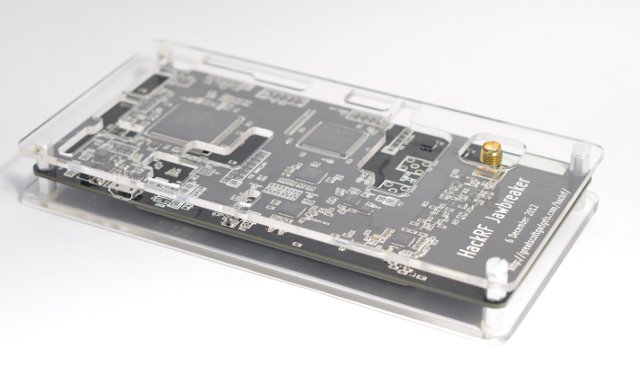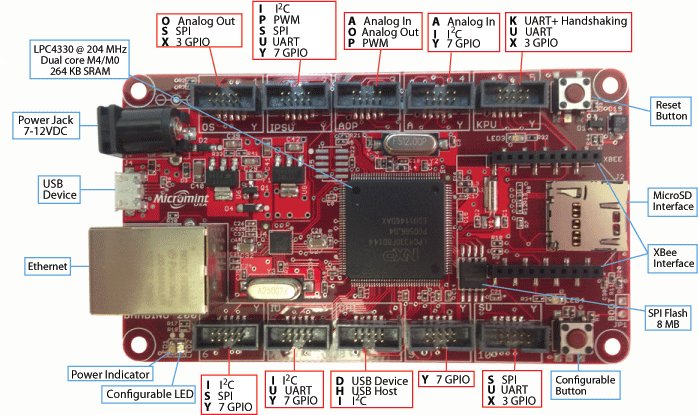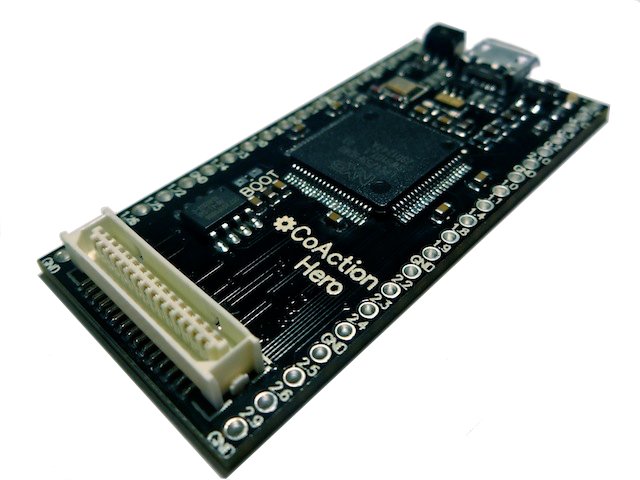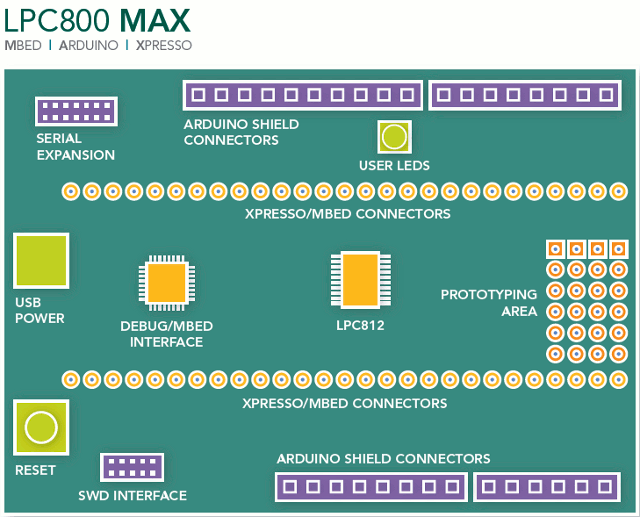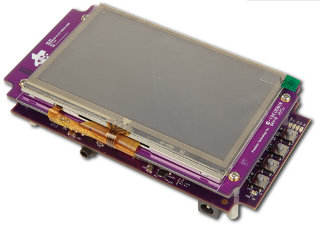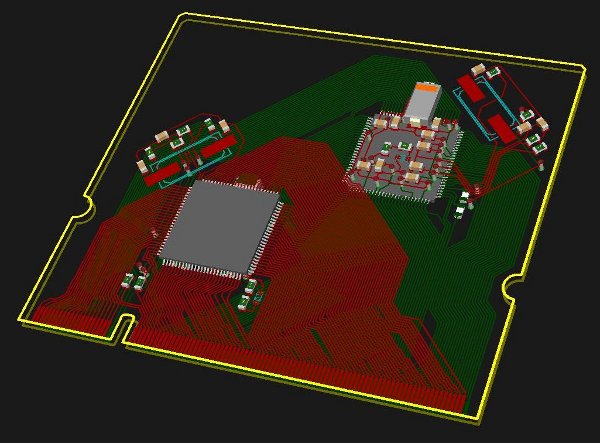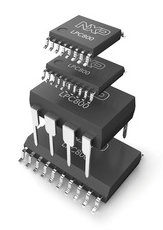HackRF is an open source hardware project to build a Software Defined Radio (SDR) supporting a frequency range between 30 MHz and 6GHz in both directions (Tx and Rx, half-duplex) with a maximum bandwidth of 20MHz. Jawbreaker (shown below) is a beta hardware that has been tested by several developers and beta testers, and applications such as Digital Audio Broadcasting (DAB), Bluetooth monitoring, spectrum sensing, wireless microphones, AIS, FM radio, etc.. have already been ported to the platform. In order to lower the cost of the hardware, Michael Ossmann has launched a Kickstarter campaign to fund mass production. There seems to be many SDR enthusiasts as the campaign has already reached its funding target ($80,000) and received for over $300,000 in ledges. What is Software Defined Radio (SDR) and What Can it Be Used for? Before providing details about the hardware and software, it may be useful to provide some […]
Micromint Bambino 200 and 200E Dual ARM Cortex M SBC Support .NET Gadgeteer and mbed Applications
Micromint, a US based supplier of single-board computers and industrial embedded controllers, has just announced Micromint Bambino 200 and 200E single board computers powered by NXP LPC4330 dual core Cortex M4/M0 MCU @ 204Mhz. Those 2 boards support .NET Gadgeteer and mbed frameworks. Key Features of Micromint Bambino 200: NXP LPC4330 Dual core ARM Cortex-M4/M0 @ 204 MHz with 264 KB SRAM. Storage – 4MB SPI flash USB – High-speed USB 2.0 device port used both as a power source and for data communications or debugging Misc – 2 buttons, 2 LEDs 5 Gadgeteer sockets Dimensions- 101.6 x 58.4 mm Bambino 200E is based on the same platform but adds: Storage – 8 MB SPI Flash (vs 4MB) 10 Gadgeteer sockets 10/100 Mbps Ethernet microSD socket Xbee socket Power jack – 7 – 15 VDC The company also explains that a JTAG for low level debugging, a coin cell battery […]
CoAction Hero – Low Cost ARM Cortex-M3 Board Running Open Source CoActionOS RTOS
CoAction Hero is a tiny board based on an ARM Cortex-M3 micro-controller (NXP LPC1759), that makes use of CoActionOS ecosystem that includes the hardware, but also an open source RTOS allowing multiple app to run concurrently, and a graphical interface to communicate with the board. First, let’s have a look at the hardware specs: Micro-controller – NXP LPC1759 ARM Cortex-M3 processor @ 120MHz with 64kB RAM and 512kB Flash ROM. Storage – 1MB serial flash chip (pre-loaded with CoActionOS) Expansion port micro USB connector. 40 I/O pins are available on both sides of the board, and the board can be inserted in a breadboard. You can currently connect 2 modules to the board: Bluetooth and LCD device boards. CoActionOS RTOS will come pre-loaded on the board, and if you don’t want to, you don’t even need to know it’s there, and it’s use will be transparent. But let’s have a […]
NXP LPC800-MAX Development Board Combines mbed, LPCXpresso and Arduino Connectivity
NXP unveiled LPC810 & LPC812 Cortex M0+ MCUs in November 2012, and more recently at Embedded World 2013, the company announced LPC810 and LPC812 microcontrollers availability together with LPC800-MAX, a development board based on NXP LPC812 compatible with mbed, Arduino and LPCXpresso headers which will be released in April 2013. LPC800-MAX board features: MCU – LPC812 Cortex M0+ in TSSOP20 package Onchip memory – 4KB SRAM and 16KB Flash. On-board debug interface (mbed USB onboard interface) on a LPC11U35 Top of board has Arduino compatible connectors, bottom of board has mbed and LPCXpresso connectors. Routing configurable via Switch Matrix. 3 color user LED, same one as on the LPC800 Xpresso A PCF8591 I2C ADC, mainly intended for use with the Arduino connectors 14-pin Serial Expansion Interface Connector compatible with several expansion modules from Embedded Artists 10-pin SWD connector for optional external debug probe User prototyping area This USB powered board will […]
$66.75 Beaglebone and Other Development Boards Xmas Deals
I’ve come across Xmas deals for uCLinux, Linux and Android development boards & kits by Texas instruments and Emcraft Systems. TI offers 25% discount off five Sitara Linux/Android development kits purchased via Ti e-Store: AM3359 Industrial Development Kit – A full-featured application development platform for evaluating the capabilities and features of Sitara AM335x ARM Cortex-A8 Processors for industrial applications. AM335x processors integrate industrial communication standards that work on Ethernet, CAN, and RS-485 physical layers. Regular price: $895 AM335x Starter Kit – Low-cost development platform based on AM335x ARM Cortex-A8 processor with multiple communication options such as Dual Gigabit Ethernet, WiFi and Bluetooth connectivity, as well as a 4.3″ LCD Touchcreen (resistive). Regular price: $199 AM3359 Industrial Communications Engine (ICE) – Low cost development platform targeted for systems that specifically focus on the industrial communications capabilities of the Sitara AM335x ARM Cortex-A8 Processors. Regular price: $99 Beaglebone – Low-cost, community-supported development […]
Open Hardware System on Module Project
“JM” has started working on a system-on-module project with the goal “to create a whole range of SoM boards and motherboards that can handle a large number of embedded projects”. He has just released schematics and layout files created with Kicad for a dual NXP LPC1764 SO-DIMM module and the baseboard under GPL3 license. The next goal is to release an AllWinner A10 SoM and corresponding baseboard. Kicad is an open source schematics capture and PCB layout software that can run in Windows, Linux and Mac. If you want to read the schematics or try it out, you can freely download it. In Ubuntu you could just use apt-get:
|
1 |
sudo apt-get install kicad fped |
The hardware files for the module and carrier board are available here. JM explains that the LPC module and baseboard have already been manufactured and tested, so it could just be a matter of adapting the module for AllWinner A10/A20. […]
NXP Launches Cortex M0+ LPC800 MCU and $15 LPC812-LPCXpresso Board
Following ARM Cortex M0+ announcement in March 2012, NXP Semiconductors has just announced the LPC800, tiny 32-bit MCUs based on Cortex M0+ core @ 30 MHz designed to replace 8-bit MCUs, together with LPCXpresso development board for the LPC800. The MCUs come with 1 to 4KB SRAM, 4 to 16 KB Flash, several serial interfaces and are available in SO20, TSSOP20, TSSOP16 and even DIP8 packages. Here are the key features of NXP new ultra low power 32-bit MCU family: ARM Cortex-M0+processor up to 30 MHz, software compatible with Cortex M0, M3 and M4 cores Memories: 4 to 16 kB Flash (with 64 Byte page size) 1 to 4 kB SRAM Serial Peripherals: Up to 3 USART interfaces Up to 2 SPI controllers 1x I2C-bus interface Timers: Multiple-channel multi-rate timer (MRT) State Configurable Timer (SCT) Self Wake-up Timer (WKT) clocked from either the IRC or a low-power clock source Windowed […]
uClinux on Cortex-M3/M4 MCU: The Costs, Performance and Power Consumption
I previously wrote about different options available to run Linux on Cortex M3 & M4 Microcontrollers, and more recently Vladimir Khusainov, co-founder and Director of Engineering at Emcraft Systems,wrote a longish article entitled “Practical Advice on Running uClinux on Cortex-M3/M4” on electronicdesign.com, where he explains how SoM are usually selected, the costs of running uClinux on Cortex M3/M4 MCUs such as Freescale K70 or STmicroelectronics STM32F2/F4, as well as performance and power consumption considerations. First, Vladimir addresses one comment that says there’s basically no use for uClinux on Cortex M3/M4 MCU, since external memory is needed and an ARM7/ARM9 modules (with MMU) can be purchased for almost the same price. There are 2 counter arguments to this point of view: In practice, customers usually select an hardware platform first, then think what OS can be used on the platform. For example, if a company decided to use an hardware based […]


